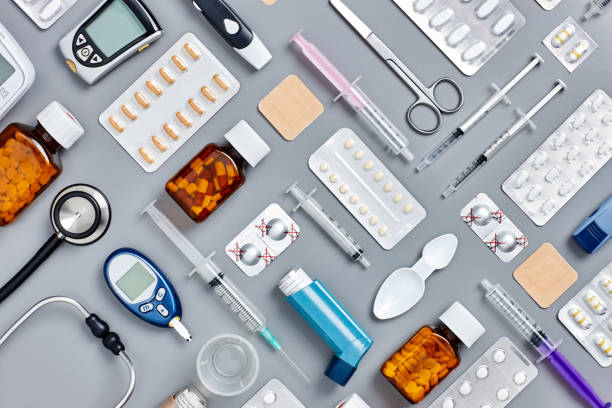
It is important for patients to integrate a lifestyle change and stick to their medications in order to manage and control diabetes. Here are five practical and different suggestions backed with the opinion of a physician to assist diabetes patients in managing their healthcare more effectively:
1. Individualize your medication timetable
Why it’s Important:
- Treating diabetes with oral medications or insulin requires that certain classes of medications be administered at specific times in order to keep blood glucose concentrations at a steady state. In the words of Dr. Emily Turner, “Consistency of such timing helps to mimic the natural circadian rhythm of insulin and cut the odds of complications.”
How to Implement:
- Discuss with your physician and adjust the timing of taking your medications so as to fit the times for your meals and physical activities.
- Employ the services of a smart pill box or a cell phone application that prompts you anytime the time goes without taking medication.
- In insulin users, attempt to administer actions in relation to blood glucose level anticipations in order to manage hyper- and hypo-glycemia
2. Watch for Side Effects Constantly
Why It’s Important:
- Almost all drugs will have side effects, some of which could include symptoms like fatigue and dizziness that may be attributable to diabetes. Prioritising a potential complication is preferable when forewarned and takes preventative measures so it doesn’t arise. Dr. Gomez, a pharmacist in practice explains, “Symptoms that accompany medication use should always be reported right away by patients as this aids in the prevention of severe drug-related issues.”
How to do it:
- Record in a diary all the symptoms that may be new to you due to introduction of additional drugs.
- After a while, contact your doctor’s office to report any strange and bothersome symptoms that you might have regardless of how mild they may be.
- Consider known medication interactions not current in the other conditions being treated with medications.
3 Using The Current Medications Appropriately In Regards To Stress & Illness

Why It’s Important:
- Stress or illness sometimes leads to blood sugar levels being elevated which impacts the effectiveness of the current dose normally taken. To quote Dr. Alan Reid, a diabetologist, “A sick day may call for a different kind of dosing approach so as to avoid extremes in blood glucose levels”.
How to do it:
- Let your doctor know whenever you are sick or irrespective of the fact that you’re under stress.
- Try to stick to any sick day protocols provided such as not taking certain unusual insulin doses.
- Have some quick-acting insulin and glucose tablets on hand to use in case of emergencies.
4. Pay Attention to Medication-Improving Strategies
Why It Matters:
- Medications alone will not cut it when it comes to management of diabetes. If they are accompanied with proper habits however, the results will be much better. Dr. Sofia Patel is a nutritionist and says, “Proper diet along with exercise can increase the effect caused by diabetes taking medicine.”
How to Implement:
- Use drugs when taking complex carbohydrates, fiber and lean meat and consume them for nourishment to suit the medication.
- Remain away from alcohol and smoking since these two have an impact on drug absorption as well as lead to more blood sugar imbalance.
- Include moderate exercise in your routine, as it helps the insulin to be more effective.
5. Cultivate a Comprehensive Understanding of Your Prescription Medications

Why It Matters:
- There are various diabetic medications that have differing modes of action. Understanding how they operate can help you control your disease more effectively. “Education is important, explained Dr. Jacob Lee, a family doctor; when patients comprehend their treatments and rationales, they are more adherent to their regimen.”
How to Implement:
- Schedule a meeting with your healthcare provider or pharmacist for an overview of each diabetes medication’s objectives, indications, and dose.
- Know the signs of medication overdose or under dosage with signs and what you should do in such cases.
- Identify the signs and symptoms of hypoglycemic (sweating, trembling) and hyperglycemic (excessive thirst, fatigue) disorders and be in possession of a management kit.
Applying the UNIQUE TIPS, patients can make sure that their medication plan is not only helpful in managing their diabetes but also is perfectly aligned with their bigger picture of health. Consult with medical doctors at all times.


